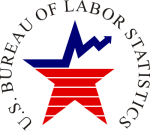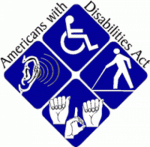Starting your own business or becoming self-employed is a major undertaking and being successful requires a good deal of thought and planning. These resources will help you get started. Abilities Fund The Abilities Fund is the only nationwide program designed exclusively to advance entrepreneurial opportunities for people with disabilities. After completing a detailed application form, Abilities Fund staff will contact you to offer support and resources that are specific to your situation. Small Business Start-up Guide
Latest Articles
If you are thinking about returning to school or getting some job training or placement assistance, here are some valuable resources. Colleges and Universities The National Center for Education Statistics (NCES) College Navigator can help you find the right college. NCES is the primary federal entity for collecting and analyzing data related to education in the U.S. and other nations. American Job Centers Services Locator (Sponsored by Department of Labor)
Healthcare jobs are among the fastest growing occupations in the economy. You should consider this fact when looking for jobs or making decisions about pursuing job training or additional education.
You can search for healthcare jobs and other fast growing occupations on AbilityLinks by Occupation Type or Key Words that identify your skills and experience.
View a list of fastest growing occupations.
What is a Disability? The Americans with Disabilities Act (ADA) defines an individual with a disability as someone who:
Has a physical or mental impairment that substantially limits one or more major life activities (such as walking, seeing, hearing, learning, and working); Has a history of such an impairment or; Is regarded as having such impairment.Remember that not all disabilities are visible or readily apparent. Physical or mental conditions such as diabetes, epilepsy, low vision, and learning disabilities like dyslexia, can also present significant barriers to employment.
How Do I Know If My Worksite Is Accessible?
The following questions will help you determine the accessibility of your work site. Sources of additional and more detailed information are provided at the end.
According to a Bureau of Labor Statistics (BLS) report from August, 2014, 31.8% of non disabled persons do not participate in the labor force vs. an 80.2% non participation rate for persons with disabilities. The unemployment rate for disabled job seekers is also more than twice as high. The BLS reports a September 2014 unemployment rate of 12.3% for disabled job seekers vs. 5.5% for non-disabled job seekers. Two studies offer some insight into why so many persons with disabilities are not working and what businesses are doing to employ and accommodate workers with disabilities:
Why Adults With Disabilities Have Difficulty Finding Jobs
1. I don’t want to get sued for firing someone with a disability. If I hire a person with a disability and they perform poorly, aren’t I “stuck” with them?
No. Your company’s policies and quality standards apply to employees with disabilities just as they apply to other employees. Once you have made the reasonable accommodations necessary to enable an employee to perform the essential functions of the job, the employee has to meet the job requirements.
2. I’m concerned about saying the wrong thing. What questions may I ask a job applicant with a disability?
The Americans with Disabilities Act (ADA) is a landmark federal law that protects the rights of people with disabilities by eliminating barriers to their participation in many aspects of living and working in America. In particular, the ADA prohibits covered employers from discriminating against people with disabilities in the full range of employment-related activities, from recruitment to advancement, to pay and benefits.
The foundation for the ADA is America’s promise of equal access to opportunity for all citizens.
There are three tax incentives available to employers that hire people with disabilities or make their places of business accessible for employees and customers with disabilities.
Work Opportunity Tax Credit The Work Opportunity Tax Credit (WOTC) is a Federal tax credit available to employers for hiring individuals from certain target groups, including disabled persons, who have consistently faced significant barriers to employment. Refer to Form 8826, Disabled Access Credit, for information about eligible expenditures.
A Primer on Bias in Interviewing
Jobseekers with Disabilities
by Mark Williams
March 2014
Webinar: August 25, 2014 Moving the Mindset: Disability and Bias in Interviewing & Hiring Presentation
Links
Article
Many of us grew up during a time when people with disabilities were relegated to special classrooms, and, as children, we were told not to stare at or ask questions of people in wheelchairs, people using sign language, or people who were mentally retarded. Since then, laws have been passed to ensure the rights of people with disabilities, and society overall has become more accommodating and accepting of those who are "different." Americans with disabilities are now in the mainstream — living independently, working, playing, going to school, voting, shopping, and otherwise participating in the same activities as everyone else.
Although city and state governments are trying to stop placard abuse, there is enough blame to go around for people with disabilities because of taking advantage of the disabled parking system. Bill Bogdan, disability liaison for the state of Illinois (and a supporter of AbilityLinks) talks about The difference in states' use of placards, the loss of revenue to city and states because of abuse of disabled parking and finding solutions to this complex problem.

Lauren Bryant is a University of Illinois student who volunteered as an AbilityLinks blogger this summer. I was pleased to supervise Lauren and serve as her editor. Here is Lauren's final blog post of the summer. - Bill O'Connor
If you apply online with any of these companies let AbilityLinks know. Tell AbilityLinks the company name, job title and number. AbilityLinks will share this information with a recruiter from the company. If you haven't yet, please post your resume on AbilityLinks too.












